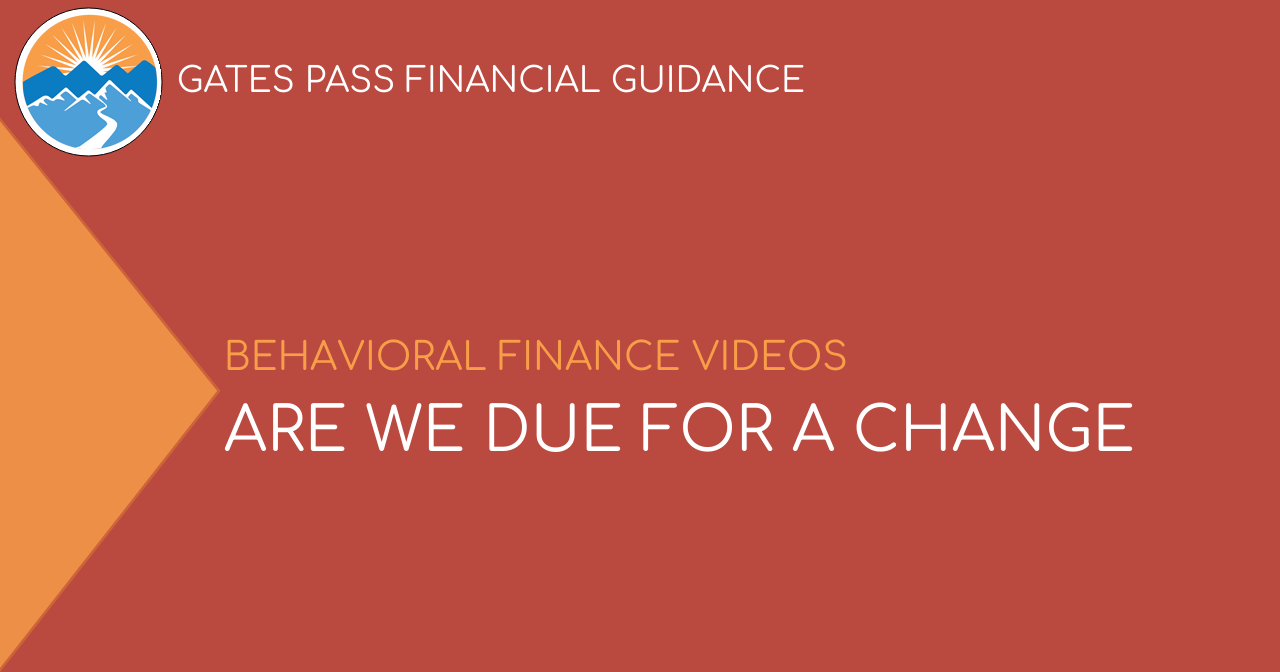A favorite (and costly) pastime of investors is to invest in assets that have recently done well. This happens in good times as investors seek better returns, and they happen in bad times as low-yielding investments such as cash are more attractive than money-losing stocks. In other words, investors chase returns.
I have listened to investors this year sharing their dismay at their declining assets and strongly considering changing their investments until the news turns positive again for stocks and bonds. For now that means waiting for signs that inflation is calming, interest rates are stabilizing, and global supply chain disruptions are resolving before markets feel comfortable again.
By investing in what just did well, investors are systematically buying after they witness gains elsewhere and selling after their assets experience loss. Chasing returns can feel very good at the time but comes with a real financial cost. We often use the Dalbar, Inc. study that estimates that equity investors underperformed the S&P 500 by roughly 6% per year over the last 20 years1 due to the timing of buying and selling.
Why We Chase Returns
There are two primary reasons it feels right to buy after we witness gains and sell after experiencing losses:
- We are greatly influenced by what just happened. Whenever we try to project the future, our brains are significantly influenced by what just happened. Good outcomes today implies that things will be good going forward, and vice versa.
- This is exacerbated by the narrative of the day. Our brains love a good story. We seek information to understand. When the market goes up, the narrative is often positive, leading us to feel good about the future. When the market goes down, the narrative is almost always negative, reinforcing a negative outlook.
Normal, But Not Beneficial
It is completely normal to invest in things we expect to go up and avoid assets we expect will go down. In fact, any rational person would do that as part of their investment strategy. The problem is that markets move quickly and often surprisingly. Narratives are wonderful and can be quite accurate in hindsight. They can even increase our confidence from certain viewpoints, but narratives offer no predictive ability in future outcomes.
The other reason that someone can be influenced by short term moves is that they do not have a true strategy or plan in place. Most have a number in mind that they think their assets must be worth in order to retire or reach a goal successfully. Therefore I advocate for quality financial planning. It is much easier to stay the course with a disciplined plan that accounts for short term market fluctuations. In our work with clients over the decades, we recognize this is not easy; temptations abound that are pleasing to our mind and feelings. That is why you have us. Together, we can be aware of common investment pitfalls and ensure that all investment decisions are well-thought out and in line with your stated objectives.
If you would like to speak with Esther or Erik about this subject or any other related finance subject:
ESTHER SZABO
CFP® , Certified Financial Transitionist®
Founder and CEO, Gates Pass Advisors
BOOK A CALL with ESTHER
ERIK SCHEI
CFA, Certified Financial Transitionist®
Associate Advisor, Gates Pass Advisors
BOOK A CALL with ERIK
©2022 The Behavioral Finance Network
1 JP Morgan Guide to the Markets. July 2022 edition. Slide 63.
| Categories:




